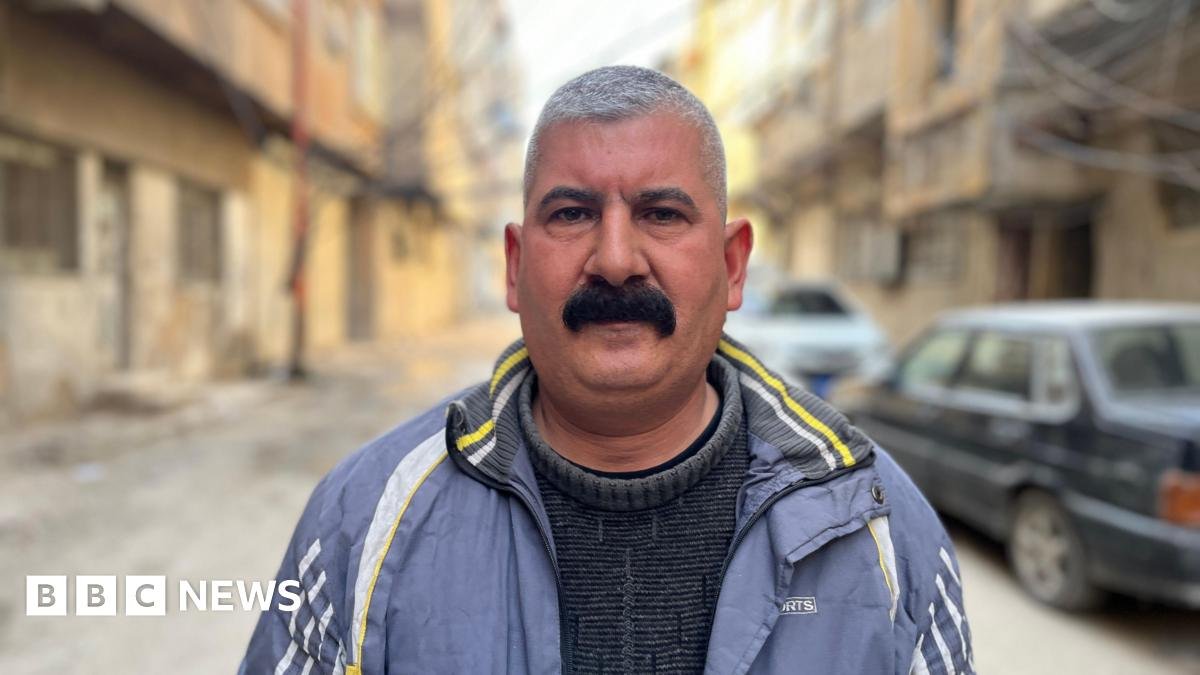As we talk to Tawfiq, more people come up to us to tell us their stories.
Khalid Naseer says his baby daughter Nour, his two-year-old son Omar, and his pregnant wife Fatima were also killed in the 2018 chlorine attack.
“Those who were killed were mostly children and women.”
The anger he’s had to suppress for six years comes out.
“The whole world knows Bashar al-Assad is an oppressor and a liar, and that he killed his own people. My wife was killed two days before she was due to deliver our baby,” he shouts, emotions running high.
The chlorine gas attack was not the only time chemical weapons were used in the area.
In 2013, rockets containing the nerve agent sarin were fired at several rebel-held suburbs in Eastern and Western Ghouta, killing hundreds of people. UN experts confirmed the use of sarin but they were not asked to ascribe any blame.
Assad denied his forces fired the rockets, but he did agree to sign the Chemical Weapons Convention and destroy Syria’s declared chemical arsenal.
Between 2013 to 2018, Human Rights Watch documented at least 85 chemical weapons attacks in Syria, accusing the Syrian government of being responsible for a majority of them.
In addition to Douma in 2018, the OPCW’s Investigation and Identification Team has identified the Syrian military as the perpetrator of four other cases of chemical weapons use in 2017 and 2018. An earlier fact-finding mission, which was not mandated to identify perpetrators, found chemical weapons were used in 20 instances.
Khalid and Tawfiq took us to a mound by the side of a road, a short drive away. They believe this is where the regime took their family’s bodies and buried them in a mass grave.
Looking down on the ground, amid gravel, mud and stones, pieces of bones are visible, although it’s not possible to tell if they are human remains.
“This is the first time I have set foot here, I swear to God. If I had tried to come here earlier, they (the regime) would have executed me”, says Tawfiq.
“On Eid, when I used to miss my family, I would ride by the side of this road and quickly glance towards this (the mound). It made me cry.”
Tawfiq wants the graves to be dug up, so he can give his family a dignified funeral.
Source link
